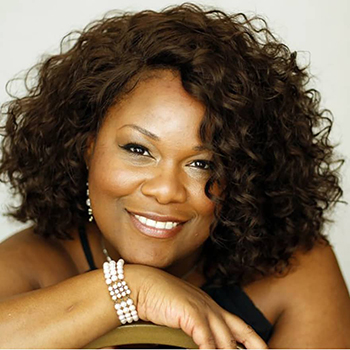by Mike Telin
Kevin McLaughlin contributed to this article
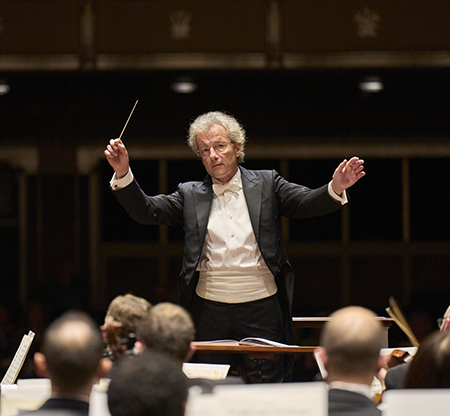
The conversation was lively. Welser-Möst was particularly excited to talk about soprano Asmik Grigorian, who will perform Strauss’ Four Last Songs and the final scene from Puccini’s Suor Angelica (March 13 and 15). “Not since Netrebko has there been a singer with that kind of charisma,” he said, adding that during the Salzburg performances of Suor Angelica “there wasn’t a dry eye in the house.”
Regarding the Beethoven Piano Concerto Cycle with Igor Levit (November 6-17), the conductor said that Levit is “a wonderful musician and has become a friend as well.”
And what did Bormann look for when she first saw the 24-25 season? “The pieces I need to practice!” she said, highlighting Schumann’s Symphony No. 2 (October 3-5). The violinist noted that the scherzo was asked for at her Cleveland Orchestra audition, an experience that still gives her butterflies every time she thinks about it. “The voice of God — I mean Franz — calling out ‘Schumann!”
On Sunday, March 17, The Cleveland Orchestra released details of its 2024-25 Severance season to the public. It contains a great variety of familiar faces and music, as well as a number of new faces and new works.
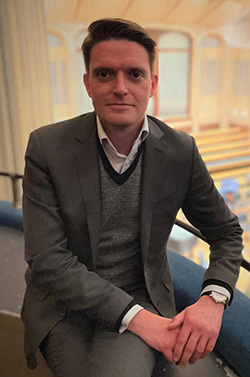
Mike Telin: The season opens on Thursday, September 19, 2024, with Franz Welser-Möst leading symphonies by Prokofiev and Tchaikovsky along with Schumann’s Violin Concerto with Frank Peter Zimmermann.
Ilya Gidalevich: The opening six weeks in terms of the conductors is incredible. We have Franz for two programs, and then in rapid succession, Daniel Harding (October 3-5) is leading the Orchestra’s premiere of George Walker’s Sinfonia No. 2. You might recall our George Walker project — I do think it’s important to expand on that moment and to delve even deeper into his work.
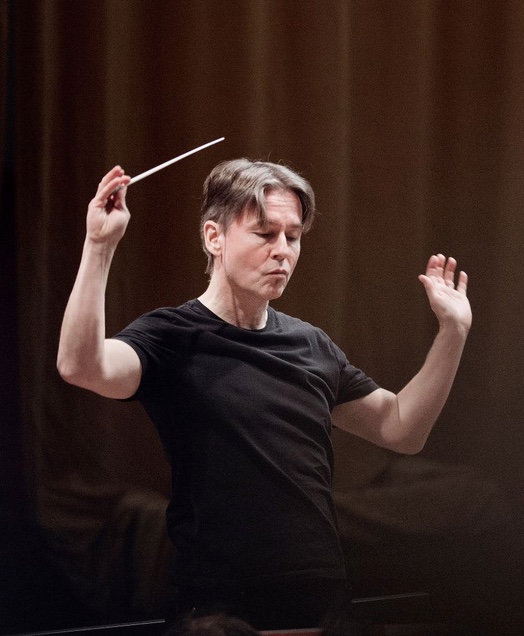
The following week Klaus Mäkelä (October 17-20) leads Mahler 3, which is a piece we don’t play all that often. At this point I think it’s been eight or nine years. So it’s going to be great to bring that piece back to Cleveland.
MT: Then you have the Cleveland conducting premiere of Tan Dun. He’s also the second of three composer-conductors on the season.
Ilya Gidalevich: That’s something that we’re trying to explore more. We just had George Benjamin for the first time in many years. He performed his own music and music of people he really respects. And John Adams, who’s been kind of a perennial presence performing his own music, will be with us again this coming April.
Going through the process of constructing a program with a conductor is always interesting. But it’s very different when you’re approaching it with a composer-conductor, because the way that they think about music and relationships between pieces is very different from a regular guest conductor.
It’s always a fascinating process, and I think it adds something unique to the season when you have somebody who wrote the notes on the page actually standing in front of you, telling you how he wants it to manifest into life. It’s also unique to have that same person talk about the sound world of a piece that they wrote, and how it relates to the sound world of whatever comes before or after it on a program. So we’re keen on continuing some of these relationships.
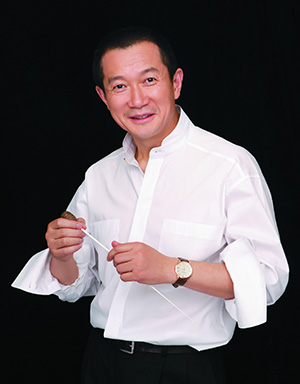
MT: The third composer-conductor is Thomas Adès (February 20 and 22).
IG: He’s probably the foremost British voice of his generation right now. He’s coming back to lead the U.S. premiere of his America: A Prophecy, which is also an Orchestra co-commission.
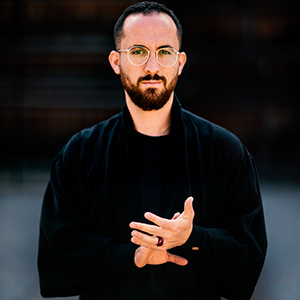
IG: This is a project that has been in the works for a long time. Igor and Franz are frequent collaborators, and on an artistic level they have a lot of similarities with each other. I also think Igor is one of the greatest interpreters of piano music alive today. And to have an opportunity to kind of pause during the season and devote two weeks to a very specific project is special.
We pride ourselves on the variety of music that’s on next season’s schedule, and a lot of thought goes into making sure there is something for everyone. To be able to take a step back on that and delve into the evolution of Beethoven’s piano writing from the first concerto to the last — and to be able to hear the entire oeuvre, including the Triple Concerto — will be a unique experience.
[November 6 and 7 — Concerto No. 3 and Triple Concerto with Augustin Hadelich, violin, and Julia Hagen, cello. November 9 and 12 — Concertos Nos. 2 and 4. November 15-17 — Concertos Nos. 1 and 5]
MT: I see there’s a world premiere of a new work for chorus by former composer in residence Bernd Richard Deutsch.
IG: He is an example of a successful relationship with the resident composers, because our hope is not to just discover new talent and allow it to blossom, but also to retain a relationship with the composers after they’ve left us.
This is a piece for chorus that we commissioned from him right before COVID. Of course we weren’t able to perform anything with the chorus for a very long time. And we’ll finally have the opportunity to premiere it on November 21, 22, and 23. Those performances along with Mahler’s Song of the Earth are going to be important to us.
MT: You have two great soloists as well.
IG: Limmie Pulliman and Iurii Samoilov are coming back. They were both here last season for Puccini’s The Girl from the Golden West.
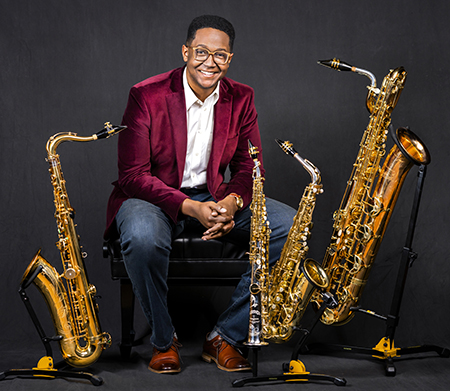
IG: This is a project where Stéphane and I talked a lot about the direction we wanted the program to go. Stéphane, being French, gravitates towards this kind of repertoire, and we really loved the French jazz angle. These are all pieces that were directly influenced by the jazz movement in America: Milhaud’s La création du monde, Guillaume Connesson’s A Kind of Trane — an homage to John Coltrane — and Poulenc’s Suite from Les biches. These pieces are all from that period when jazz was sort of taking France by storm. And of course Gershwin’s American in Paris is very different — its jazz coming from Paris back to the U.S.
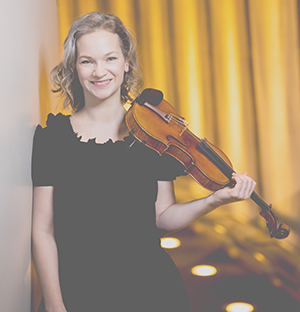
IG: Yes, the concert with her and conductor Elim Chan is going to be something. Hilary hasn’t been with us in quite some time, so to have her back playing Brahms is great. Elim first came to us at Blossom and had great success, so it was important to bring her back during the subscription season. And Lutosławski’s Concerto for Orchestra is not a piece that we have done very often.
MT: On February 13 and 15 countertenor Tim Mead is returning along with Fabio Luisi.
IG: Tim is coming back very quickly — he was with us for the George Benjamin project a few weeks ago. And when I was talking to Fabio Luisi, who was of course here just last week, about what he would like to do next, he brought up the composer Silvia Colasanti. She’s a contemporary Italian composer, and her Time’s Cruel Hand is based on three Shakespeare sonnets. And it’s never been performed in the U.S.
MT: Another program that jumped out at me is March 13 and 15 with Franz conducting a Haydn symphony, Strauss’ Four Last Songs, Janáček’s From the House of the Dead Suite, and the Last Scene from Puccini’s Suor Angelica.
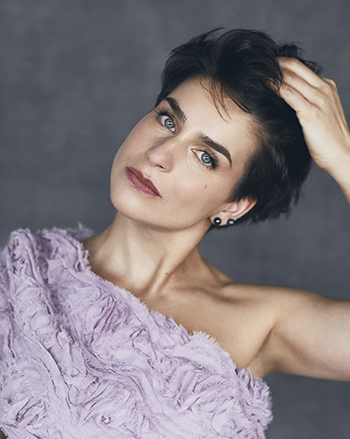
MT: There are so many interesting programs to talk about, but let’s move to May 8, 9, and 10 with the premiere of a new work by Allison Loggins-Hull (below left).

Last season we played her piece Can You See? which we are taking on tour with us this summer. This season she’s been spending her time going into the community, and through that experience she identified three organizations in particular that she wanted to engage with on a much deeper level by creating and curating programs that bring together those community members along with Orchestra musicians for evenings of chamber music. We just had our first one a couple of days ago at St. Vladimir Ukrainian Orthodox Church Cultural Center with a bandura choir. It went very well, and we have two more coming up before a concert here at Severance that will feature a chamber work commission by Allison.
So all of the community activities she’s been doing will serve as inspiration for her new full-length work.
MT: And the season will wrap up with Janáček’s opera Jenůfa and the Humanities Festival from May 17 through May 24.
IG: One of the legacies of Franz will be that he brought opera back to the forefront of this orchestra. He feels very deeply that opera is important, not just for the audience to hear, but also for the orchestra to play. So we’ve made a considered effort to, at the very least, bring one opera to our season every year.
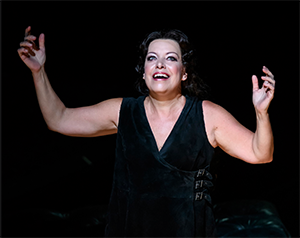
IG: This will be a debut for Pavol Breslik, and it will be great to have Latonia, Miles, and Nina back. And now that the Humanities Festival is in place, it’s a special opportunity to round out the opera performances with even more meaningful programming like Poulenc’s La voix humaine.
MT: We have covered a lot in this conversation and we haven’t touched on everything.
IG: I should add that Kazuki Yamada and Thomas Guggeis are making their conducting debuts during the second half of the season. Kazuki is the newly appointed music director of the City of Birmingham Orchestra, and as a kind of a wink to that, he’s bringing Elgar’s Symphony No. 1, which we’re very excited about. And Thomas Guggeis is another young conductor who is general director of Oper Frankfurt right now. We’ve heard many good things about him. He’s bringing a unique program that features our own principal cello, Mark Kosower, in Dutilleux’s Tout un monde lointain…
MT: And the piano recital series is continuing.
IG: I think one of the unspoken benefits of having the piano recital series is that we see these people with the orchestra time and time again — we know them in that particular type of repertoire — so it’s nice to get to hear them in something that is a lot more intimate, like a recital.
Published on ClevelandClassical.com March 18, 2024.
Click here for a printable copy of this article



